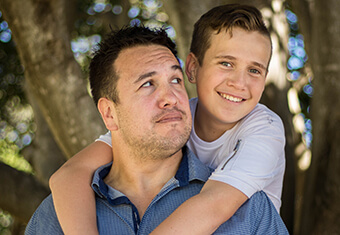Pensions are far more than a way to save for your retirement. This article aims to explain the basics of pensions and what you need to consider about your own pensions.
Types of pensions
Apart from the State Pension, there are two main types:
- Defined contribution (DC) schemes, which are also known as ‘money purchase’ schemes. These include personal pension plans, self-invested personal pensions (SIPPs) and workplace pensions.
- Defined benefit (DB) schemes, which are also known as ‘final salary’ schemes. These include NHS, teacher and government pension schemes.
A bit about tax
Pensions are a very tax efficient way to save. As long as you remain within the maximum limit, you receive tax relief on contributions paid into your pension.
Also, investment growth and income in your pension fund is tax free. When you take money out of your pension, you can take part of the fund as a lump sum, tax free.
How much can you pay into a pension?
You can make contributions that qualify for tax relief by whichever is the lowest amount of either:
- 100% of your ‘UK Relevant Earnings’ (Tool Tip: For most people, this includes salary and bonuses. They exclude dividends, rent and some other payments, such as withdrawals from investment bonds) or the
- Annual allowance, which is currently £60,000 (2023/24).
If you earn more than the annual allowance, you may still be able contribute more by using unused allowances from previous years. Also, someone under 75 with no earnings can contribute £2,880 (net) or £3,600 (gross) which includes children! If a child contributes to a pension, their parent or legal guardian looks after it until they are 18.
What happens when you die?
In most cases, if you die leaving a ‘residual’ pension fund, your nominated beneficiaries receive it, inheritance tax (IHT) free. The residual fund is the amount left in the fund when the person dies.
However, it is important that you set up either a ‘nomination’ or an ‘expression of wishes’ to explain who you want to receive your pension. This can be a family member, charity, friend or a trust. You can change your nomination at any stage. It is a good idea to review it periodically.
The death benefits on most pensions are held under a discretionary trust. Find out more about what a discretionary trust is.
The people who run the trust will usually only deviate from your stated wishes if significant circumstances come to light. For example, they might do so if you had got divorced and remarried many years after setting up your nomination, but not updated it.
If you die before you turn 75, the people you choose to receive your remaining pension fund will get it without having to pay any income tax. However, if you die after reaching 75, the recipients will have to pay income tax based on their own tax rates. This applies whether they take the money as a lump sum or regular payments.
You also have the option to nominate a ‘bypass’ trust to receive your pension fund when you die. However, if you choose this option and die after 75, a 45% tax charge will be applied to the amount paid out from your pension fund. This tax charge will be deducted directly by your pension scheme administrator and paid to HMRC.
This is why it’s advisable to review your nomination as you approach 75 to avoid this tax charge. However, it’s important to note that there might be valid reasons for not changing your nomination.
The role of pensions in planning your estate
Because a pension fund is held outside of your estate, the value does not typically suffer IHT when you die, which opens up a number of opportunities to plan your estate in a tax efficient manner.
Robin Melley TEP, Founder and Director, Matrix Capital, Chartered Financial Planners
 UK
UK  Canada
Canada


